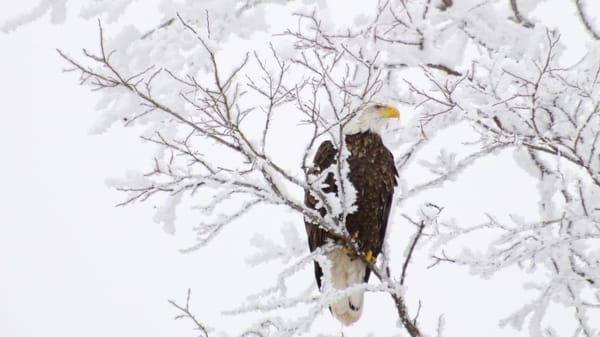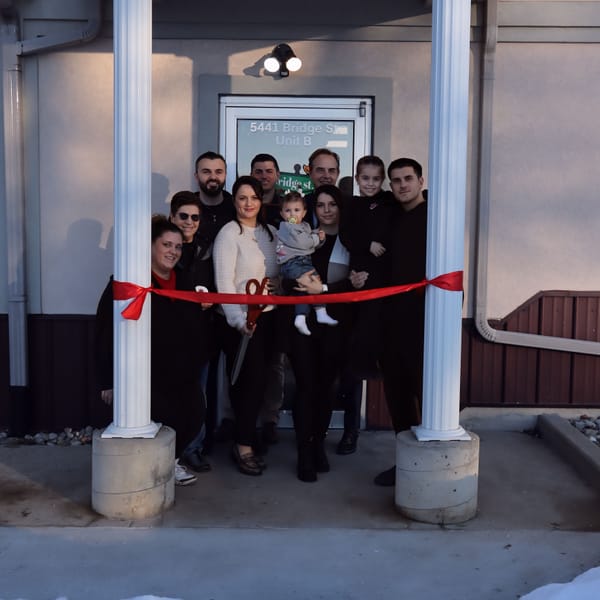Roscoe area may have another state champion tree
The Northern Red Oak near Roscoe IL is 99 feet high and more than 17 feet around.

“NLI’s Legacy Tree Program has discovered another tree that, pending verification, will become state champion," says Alan Branhagen, Executive Director, Natural Land Institute. “It’s a Northern Red Oak growing on private property near Roscoe and is the featured Tree of the Month for June.” Northern Red Oaks become the largest oaks in northeastern North America.
The NLI June Tree of the Month, a Northern Red Oak (Quercus rubra) was submitted by Thom Shelow and re-measured by Howard Knodle, Natural Land Institute trustee: Height: 99 feet, Crown Spread: 51 feet -3 inches, Circumference: 213” (17 feet-9 inches around!).
Other state champion trees recognized by the program include a Black Maple on the side of Moody Road west of Rockton and a Bebb Willow found at Lost Flora Fen on Raccoon Creek near Rockton.
In 2019 Thom and his wife, Teresa Beach-Shelow, moved to the woods. They said, “It has been exciting to walk and come upon a few distinctively large trees. This one, the Northern Red Oak especially, has drawn us to show many of our guests. We gather at its base and record our time together. We knew it was special, but are so surprised that it may be a State Champion.”
Northern Red Oaks are keystone species supporting an impressive array of biodiversity. The trees are usually found in more sheltered slopes and river/stream terraces in moist soil - unlike the county’s most common tree, burr oak, that often grows in the open and on sites that are very dry. The trees can have impressive trunks, and when grown in a forest, often clear of any side branches until high up. This tree obviously grew in a more open woodland as it has impressive old limbs branching lower.
Northern Red Oaks are in the red oak group of oaks whose acorns take two years to mature and whose wood does not hold water. Oak barrels are made from white oak group oaks that do hold water. They have our largest acorns with a cap just covering basically the top of the nut. The leaves are shallowly lobed with sharp points at the tips and turn various shades from burnt red to brownish red in late fall.
Fine red oak lumber, used in everything from flooring to cabinetry and trim, may be currently “out of style” but it remains much loved by many. Competition from more aggressive trees like hackberry and black walnut, along with invasive shrubs like honeysuckle and buckthorn, have caused the species to be in decline, with very few new trees to replace the existing stock – a statement that covers virtually all our native oaks. Finding a towering northern red oak with a great buttressed root flair is always a thrill when out hiking in our remnant forests.
Branhagen, said, “This tree is in decline with dead limbs and ‘cavities’, but as it’s not a hazard in its location, this grand tree can be allowed to serve as an important home for wildlife (those cavities provide places for all sorts of wildlife to find shelter and food!). 25% of our biodiversity is said to be tied to recycling the wood in the forest so allowing the tree just to be and return to the soil is important.” The saying goes: oaks can grow for one hundred years, thrive for another 100 years, decline for another hundred years and take one hundred more years to die.
Natural Land Institute launched the Legacy Tree Program in January 2024. It recognizes one tree a month that may be the largest of its kind, or have historical or cultural significance. Anyone may nominate a tree on private or public land from NLI’s 12 county service area (Boone, Bureau, Carroll, northern DeKalb, Henry, Jo Daviess, Lee, Ogle, Rock Island, Stephenson, Whiteside, and Winnebago). Other components of the program, the online nomination form, and the tree of the month since January can be found at the Legacy Tree webpage.
About the Natural Land Institute:
The Natural Land Institute, an accredited land trust, is a 501(c)3, not-for-profit land conservation organization based in Rockford, Illinois and has protected 18,000 acres of natural land in Illinois since 1958. NLI’s mission is to create an enduring legacy of natural land in northern Illinois for people, plants and animals. For more information and to donate, call 815-964-6666 or email info@naturalland.org.





